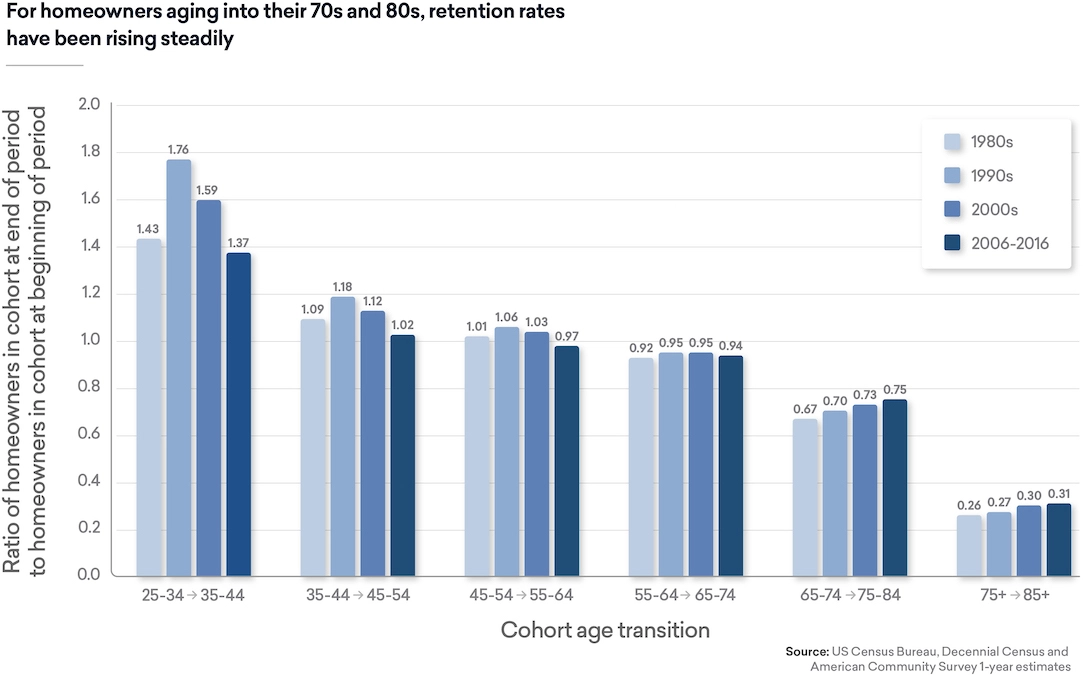My back-to-work morning train WFH reads:
• The higher you climb, the smaller your world becomes: Like seemingly everyone on this app I have plenty of opinions about Twitter > X and figure now is a good time to open up a bit about my experience at the company. I tweeted for years into the void for the love of it like many of you, but after selling my startup to Twitter in 2020 I finally got to see it from the inside. Up close it was both amazing and terrible, like so many other companies and things in life. (Esther Crawford)
• The Luxury Home Market Confronts Its New Reality: Not Enough Buyers and Sellers: Sales at the high end continue to decline, as homeowners pull back on listing properties and would-be buyers grapple with high interest rates and recession fears. (Wall Street Journal) see also How Feasible Is It to Turn Office Buildings Into Apartments? Increasingly cited as part of the way to solve the affordable housing crisis, an architect who specializes in office-to-residential conversions explains exactly what makes a good one. (Dwell)
• 5 Ways That Buying a Car Has Drastically Changed: Car sellers and car buyers confronted a whole host of challenges in the pandemic, and now it’s clear that some of the challenges are here to stay. ‘Normal is not our benchmark anymore.’ (Wall Street Journal)
• The little search engine that couldn’t: A couple of ex-Googlers set out to create the search engine of the future. They built something faster, simpler, and ad-free. So how come you’ve never heard of Neeva? (The Verge)
• That Cool New Bookstore? It’s a Barnes & Noble. America’s biggest bookstore chain is being reinvented. To understand the strategy for its 596 stores, look at the most famous one. (Wall Street Journal)
• The tricky truth about how generative AI uses your data: AI systems train on your data. What can you do about it? (Vox)
• Why did it take psychedelics so long to become popular? Some lessons from history and archaeology (Res Obscura)
• New indictment proves Trump never learned the first lesson of Watergate: “If the allegations in the latest indictment of Donald Trump hold up, the former president is a common criminal — and an uncommonly stupid one.” (Washington Post)
• Einstein and Oppenheimer’s Real Relationship Was Cordial and Complicated: Though Einstein didn’t help build the nuclear bomb and has just a few scenes in Oppenheimer, they pack a punch—and reflect the two physicists’ real-life dynamic. (Vanity Fair)
• What it’s like to play with and against Lionel Messi: A privilege and a nightmare: “You knew the team were going to create chances, and that the opposition were going to be on top of him, sometimes two, three players. And that meant that the other players on our team were free. They couldn’t stop us.” (The Athletic)
Be sure to check out our Masters in Business this week with Liz Hoffman, Liz Hoffman, the Business and Finance Editor at Semafor. Previously, she was a senior reporter at Wall Street Journal covering finance, investment banking and M&A. Following a string of front-page articles on Goldman Sachs push into Main St, and the travails of the world’s largest VC, she moved to Semafor. Her new book is Crash Landing: The Inside Story of How the World’s Biggest Companies Survived an Economy on the Brink.
There may be signs of hope for increased inventory if Boomers follow the pattern of past generations, but will they?

Source: Housing Wire
Sign up for our reads-only mailing list here.

